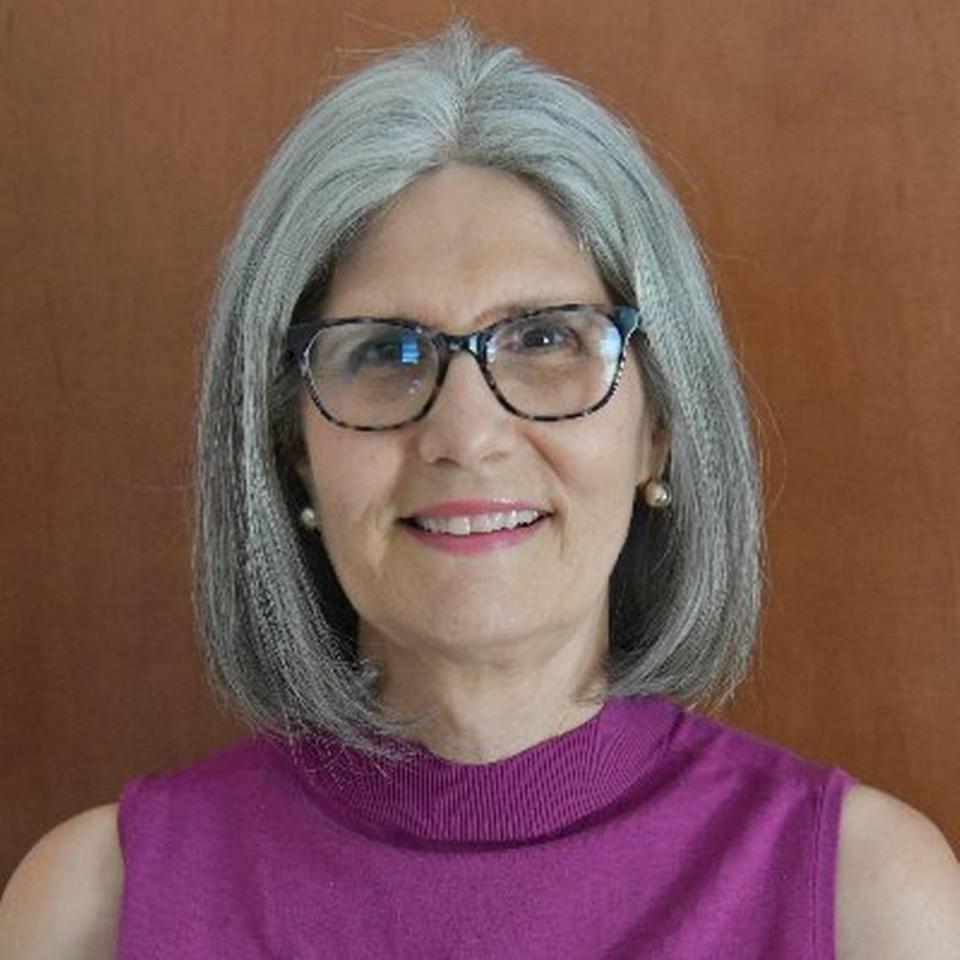The bonds we forge with our sisters always remain. Even when they’re no longer with us | Opinion
My middle sister would have turned 65 this month, her birthday a few days after the world celebrated National Siblings Day. On that April morning, my social media feed pinged with pictures of brothers and sisters sharing their immutable bond, some black-and-white photos from childhood, others from a more immediate past. In all, I could detect the familial resemblance: the same straight nose or the same lopsided smile, maybe a similar stare into the camera.
The images made me smile, but the initial reaction was quickly replaced by that telltale burning in my eyes and a familiar dryness in my throat. My body has a Pavlovian reaction to nostalgic instances such as these, to remembrances threaded with grief. Regardless of the passage of time or the hard living done since, it’s as if I have little control over long-settled feelings that surface unbidden.
This October will mark 20 years since my sister and her husband were killed in an accident. An unlicensed driver in a small truck blew a light and T–boned their motorcycle just blocks from their home. They had gone out for coffee, leaving cookies cooling on the kitchen counter and laundry in the dryer. Their youngest of three came to live with us, and the eldest was honorably discharged from the Marines. The middle child, my goddaughter, graduated from high school seven months later.
My rage at the driver has subsided, but the heartache hasn’t. Come to think of it, maybe the anger really never disappeared, only morphed into something more useful, less damaging and exhausting. I spend time with her children, who have grown up to be compassionate, conscientious adults. I never ever forget the birthdays of the grandchildren she never got to meet. And I often joke that while all my adult kids have moved hundreds of miles away, my nephew and two nieces live no more than 10 minutes from me.
There are moments when grief punches me hard in the gut, settling under my rib cage for a few hours. Like the time, several years ago, when one of her daughters took my hands and exclaimed: “My mom’s hands! Even your thumb nails, the way they curve in, are the same.”
Or the time her youngest asked me to be in the labor room as she gave birth to her daughter, an event I hadn’t experienced even with my own grandkids.
Or the time her son was promoted to battalion chief for Miami-Dade Fire Rescue. How proud she would be!
Siblinghood is the longest relationship most of us have with another person. (About 80% of Americans grow up with at least one sibling, according to the U.S. Census.) Brothers and sisters are (usually) there long after parents are gone and long before friends, children or romantic partners step onto the stage.
You share a secret world with them and create, sometimes haphazardly, alliances and rivalry that inform adult connections. I have three remaining siblings, two brothers and one sister, but it is my middle sister, two years younger, who played the biggest role in my youth.
We fought over toys, traded clothes, whispered secrets, covered for each other. As teenagers, our voices were so alike that we would trick our parents on the phone. There are times now, especially as I grow older, that I want someone to confirm a childhood memory. Did so-and-so say such-and-such at that birthday party? What was the name of our neighbor in that duplex we rented when we first arrived from Cuba? Was there a special spice our mother used when cooking her tripe with garbanzo dish?
When a sibling dies, the link to the past frays, even if there are other surviving siblings. But I like to think, for my own peace of mind, that my sister is looking on from another dimension, nodding, smiling and providing clues, embellishing a memory she and I would have appreciated when others couldn’t. I like to think, too, that a connection forged during the angst of girlhood crosses boundaries and transcends time, unbreakable and enduring.
At least I want to make it so.

Ana Veciana-Suarez writes about family and social issues. Email her at avecianasuarez@gmail.com or visit her website anavecianasuarez.com. Follow @AnaVeciana.

